Welcome to week four, online guide to everything HtTAJwBTG. We will begin with week one to three’s presentation notes, and then at the bottom I will provide a link for further study. Hope to see you join us in person next week! Thank you for joining us for week two. We will begin by reviewing last week’s content.
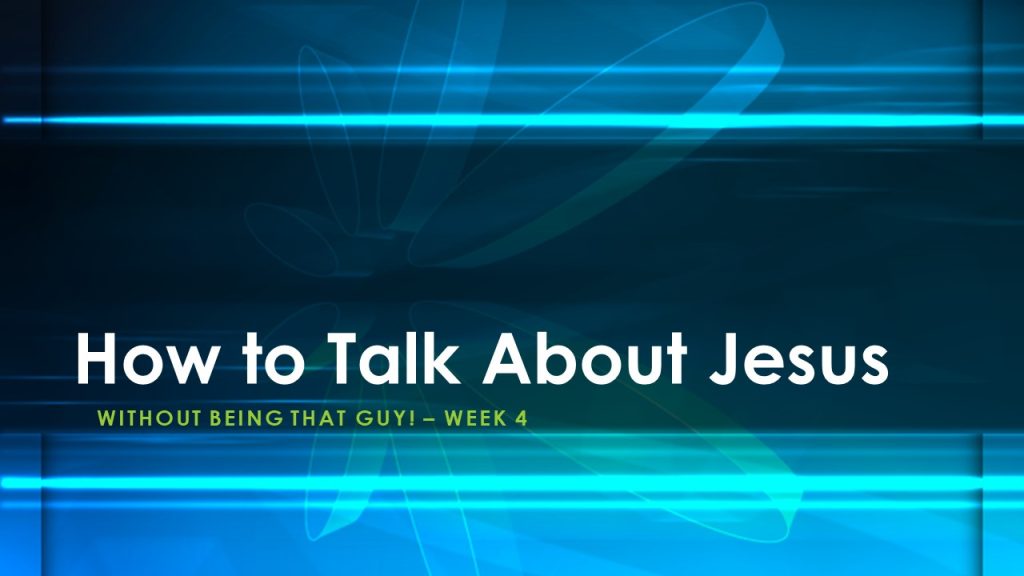
Welcome to our fourth week review.
Let’s begin by reviewing some summary note from week one – three
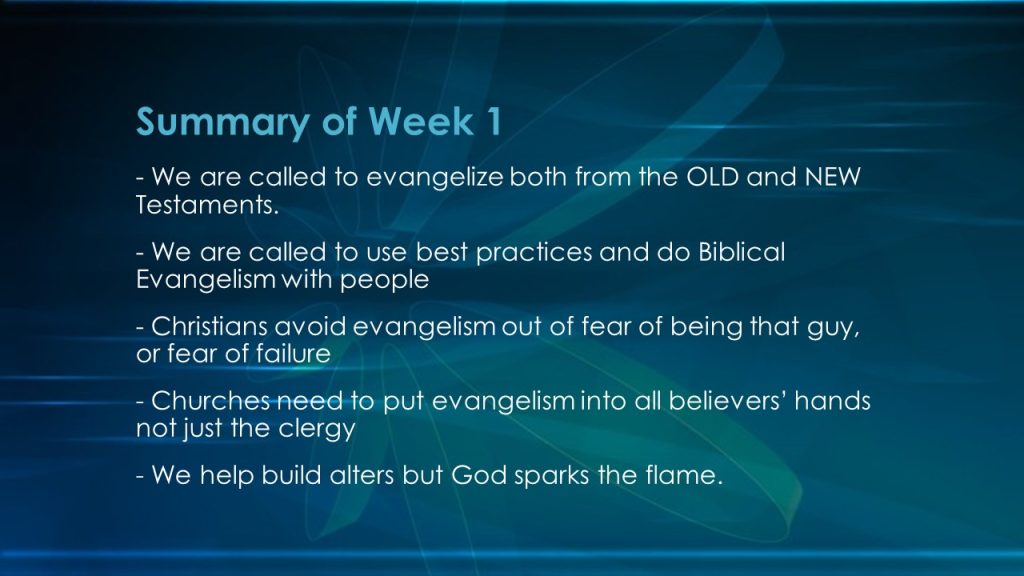
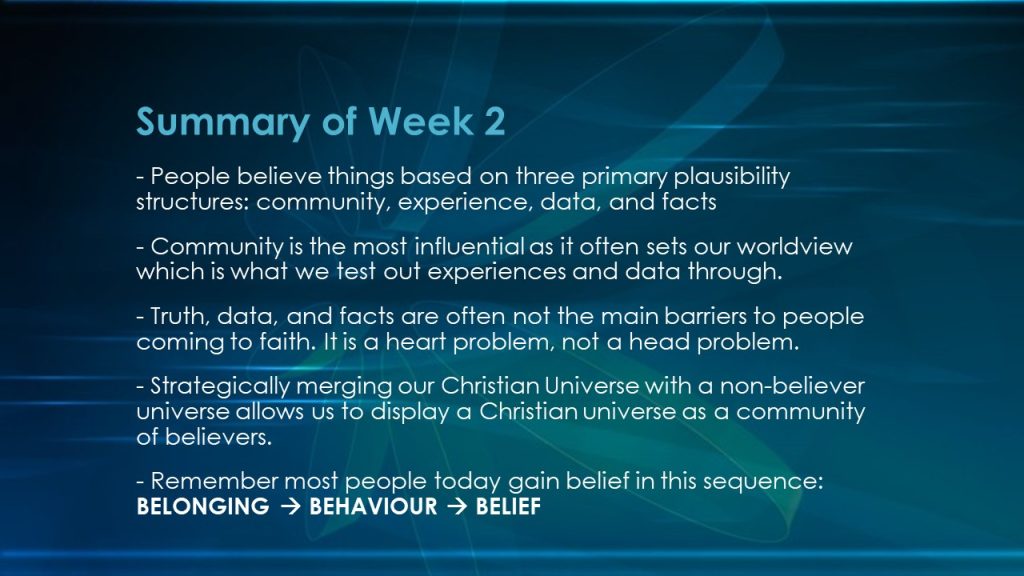
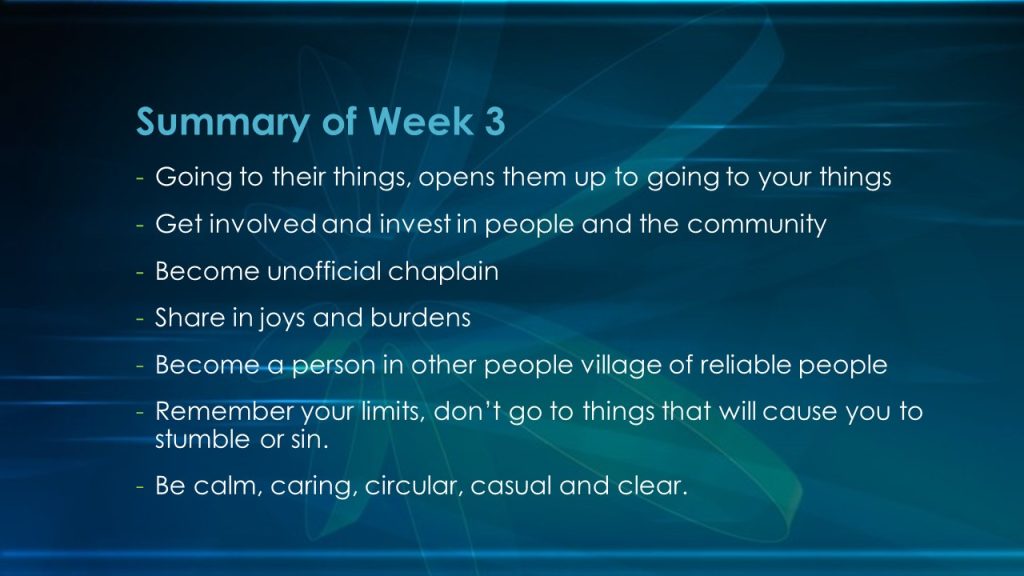
We have covered a lot of content so far recognizing all the thing we need to know and remember about evangelism, and talking about Jesus with others. Now it is time to figure out when is the best time to speak about Jesus.
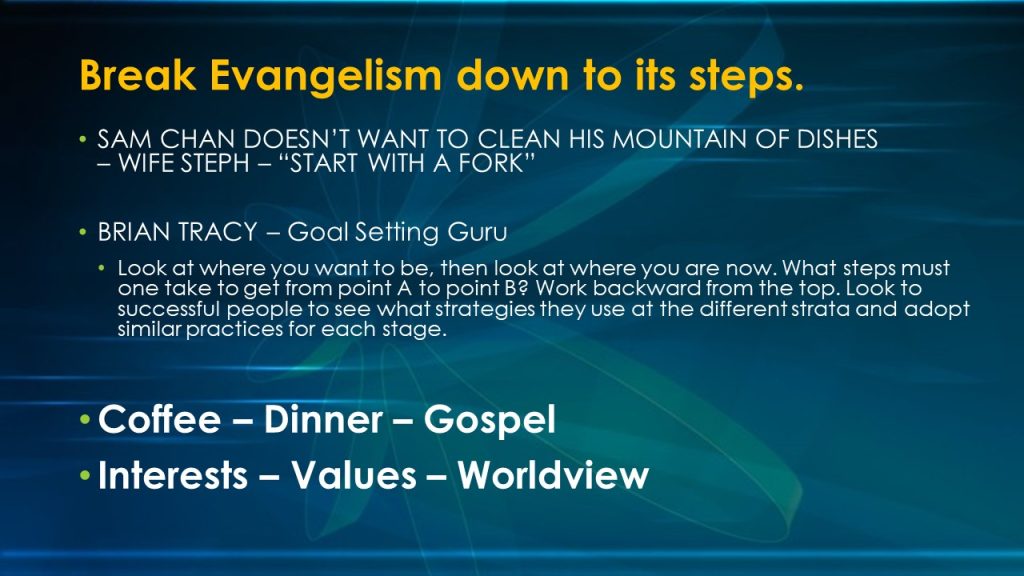
Chan speaks about how sometimes a task can seem overwhelming to take on. You see a big pile of dirty dishes and it feel like too much to deal with right now. But sometime the best thing to do with a challenge is begin with a little step in the right direction. If you got a bid pile of dishes, try cleaning one folk to get the ball rolling.
When I was in high school my father let me borrow these motivational business cassette tapes featuring the business guru Brian Tracy. Tracy was well know for helping people with goal setting. The premise of goal setting is pretty simple, you look at where you want to be versus were you are currently, then you plan out a pathway of steps, working backwards from where you would like to end up to where you are now. Suddenly you have a bunch of little steps to take in the write direction.
Chan set up a small and simple stair case for us to work with: Coffee -> Dinner -> Gospel
This small staircase helps us break down out evangelism efforts into small and attainable goals. And the best part of these steps is that the will help us come to see the person or people, that we are witnessing to, as full and wonderful people with their own backstory.
Let’s look at each step in more detail.
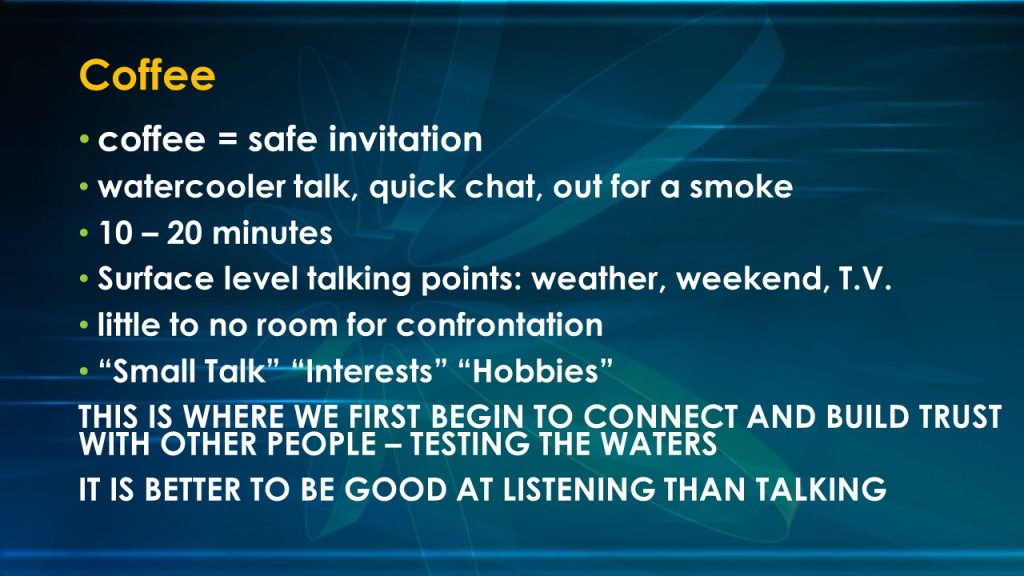
The coffee stage is not only for coffee. The coffee represents a short exchange between two people which is about 10-20 minutes at most. These exchanges are the little blips of time we use to get to know someone. This not the stage to jump in a talk about Jesus with some, because we don’t know who they are yet. The coffee stage can be found in all sort of circumstances: chatting at the watercooler at work, a quick chat as your walking the dog by the neighbor’s house, out for a smoke break, or with something more intentional like asking some to grab a coffee with you. In these shorter exchanges, people will offer topics which are “surface” level comments. Thinks about the weather, weekend plans, and what they watch of Television. These sort of comments are a low risk of controversy. It is in this stage we begin to put out of feelers to see if someone is worth investing in as a friend.
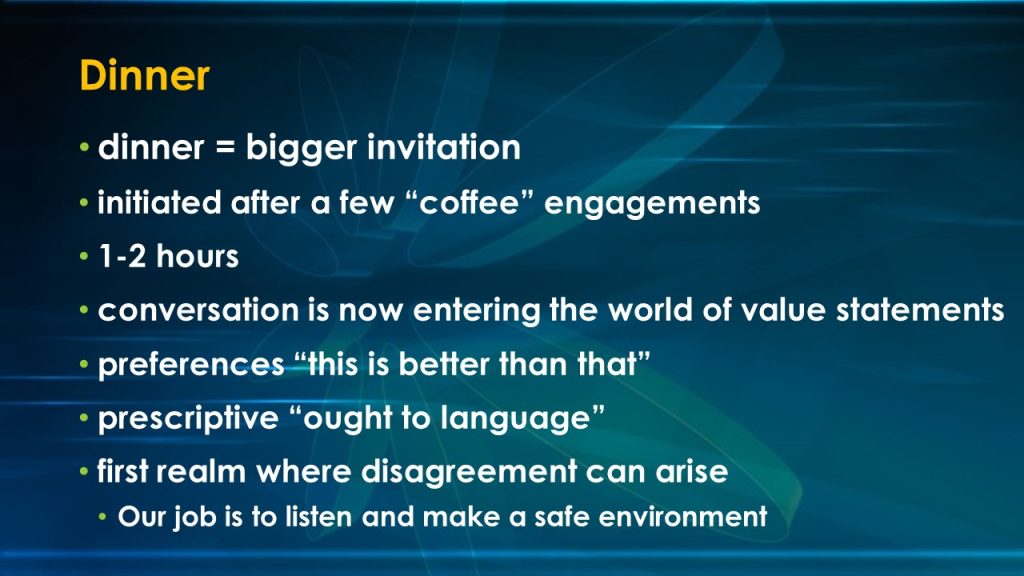
After a few coffee sessions we can move towards a bigger invitation, Chan names this level dinner. Dinner is a bigger commitment of time 1 -2 hours. Naturally with more time, there is more room to dive deeper in conversations. At the dinner stage we enter into the realm of value statements. Value statements are a bit risky as we tend to speak to personal preference or give our perspective. This is better than that, or people ought to do this. Since this realm has more risk and vulnerability we as the evangelist have to resist arguing positions in favor of listening to out friend. Be curious about what they have to say, learn about them. Try your best to make them feel safe to share.
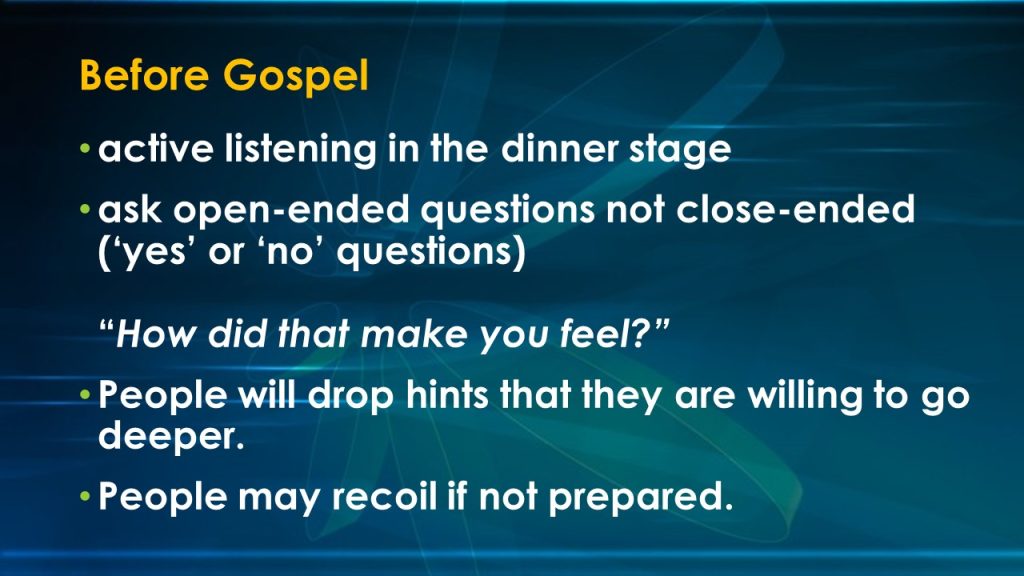
Before we can go into the Gospel stage, we need to make sure we are doing our part to navigate when it is the right time to dive even deeper with some one. First we have to make sure we are actively listening to people. Active listening means you are doing less of the talking, which can be easier for some of us than others. To help our active listening we can ask open ended questions to invite someone to speak more. If a friend says to you, ‘I use to play hockey with my dad as a child.‘ The best way to get them to go deeper is ask a question which cannot be answered by ‘yes’ or ‘no’. Instead of asking ‘did you enjoy that? ‘, ask ‘how did that make you feel when you played with your dad? ‘ And open ended question cannot be answered with a ‘yes’ or a ‘no’, rather it directs the conversation to a story which can beget another open end question, making more room for you to learn about the person and where they are coming from.
In there responses the person you are speaking with might drop hints that they are ready to go deeper, or they may recoil. Respect there pace, and wait for them to be ready, evangelism can take many dinners.
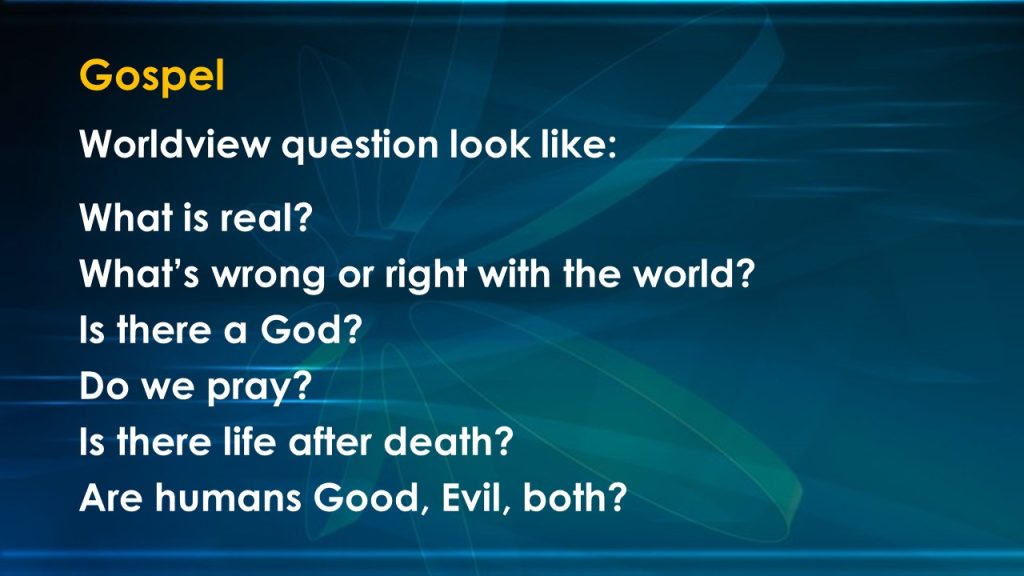
After the coffee and dinner climb, we finally get a chance to get into Gospel. Now just because we are here doesn’t mean our active listening goes away. If anything it is more important, because this is the layer were people wrestle with the big questions.
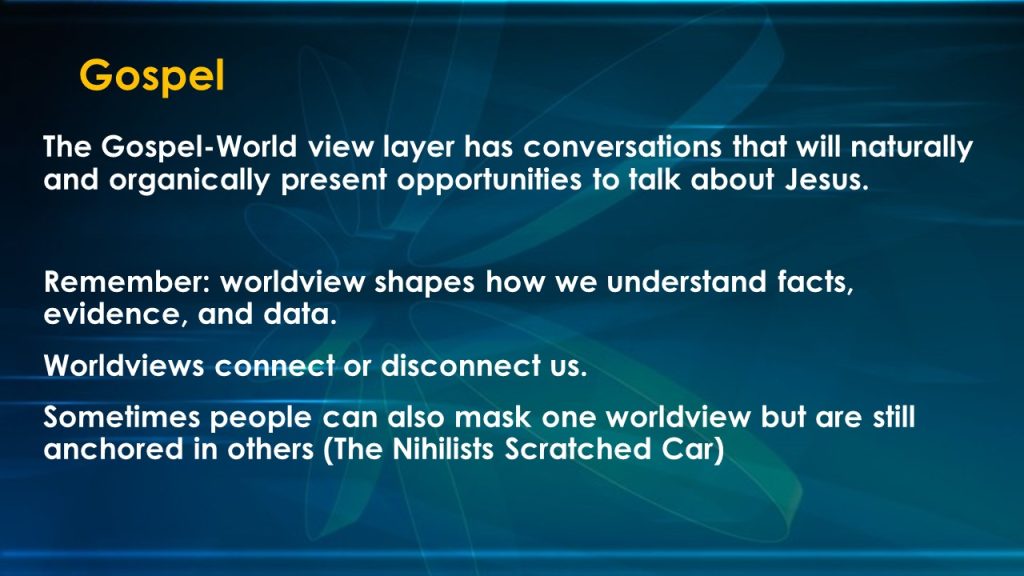
Embedded with the Gospel layer is worldview. The thing to remember about worldviews is that every worldview has a viewer, and these views influence the viewers understanding of community, experience and facts and data; the plausibility structures which influence belief. These world views also influence how we connect or disconnect with others. We are more incline to yoke ourselves to people who have similar worldviews.
And in some cases people will mask one world view with another. For example, someone can claim to be a moral relativist or a nihilist but if their car gets keyed they may still become upset and due to an internal appeal to justice and morality. Sometime people have two world views which clash.
This is why listening is still so important. People are complicated, sometimes more complicated than they know.
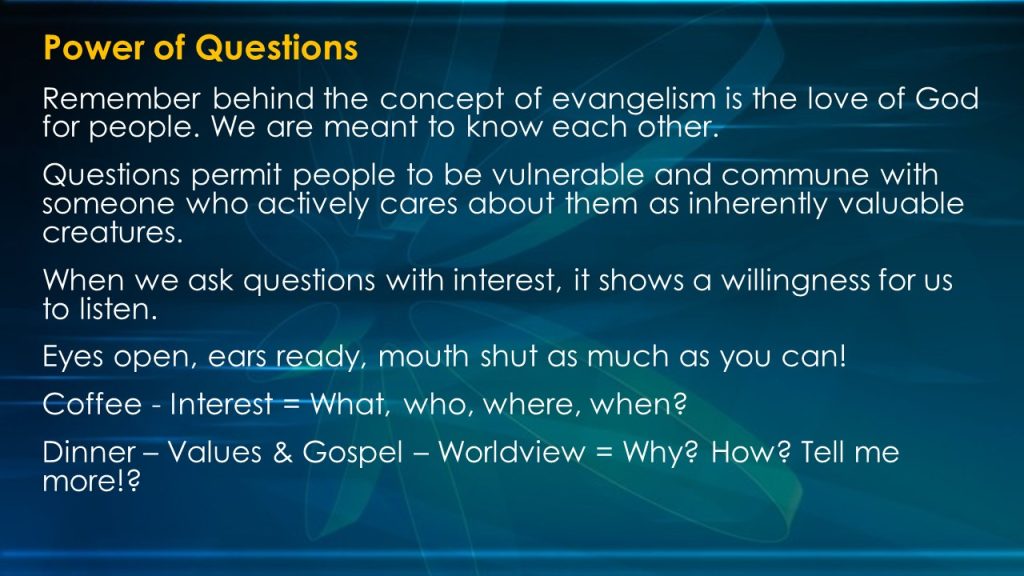
Sometimes when we first look at how to be evangelist, it can feel very clinical, and like we are digging into peoples motives and lives. But in this, remember that behind the concept of evangelism is the love of God for people. We are meant to know each other, invest into each other.
Questions have a power which help us invest into people they was God calls us to. When we ask questions, with a genuine concern and curiosity about others, it tells them that we are willing to sacrifice our time to hear their story.
And if you need a method to facilitate this, try food. Chan swings much of his advice around the use of food. Check this slide for a few reasons why.
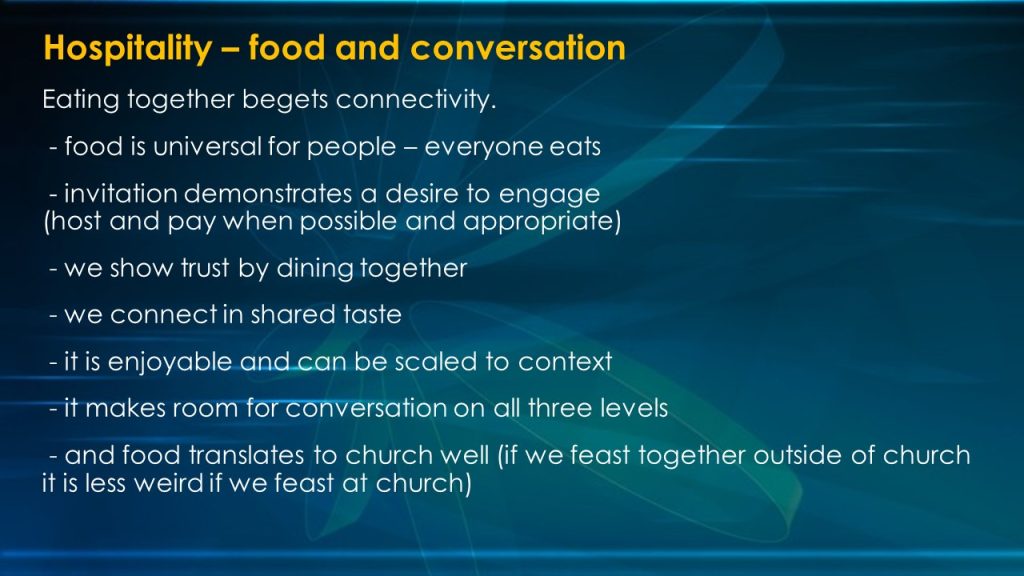
Chan uses Coffee-Dinner-Gospel but ultimately it is more, Interests-Values-Worldview/Gospel, which means this staircase toward talking about Jesus can take many forms, here are a few examples.
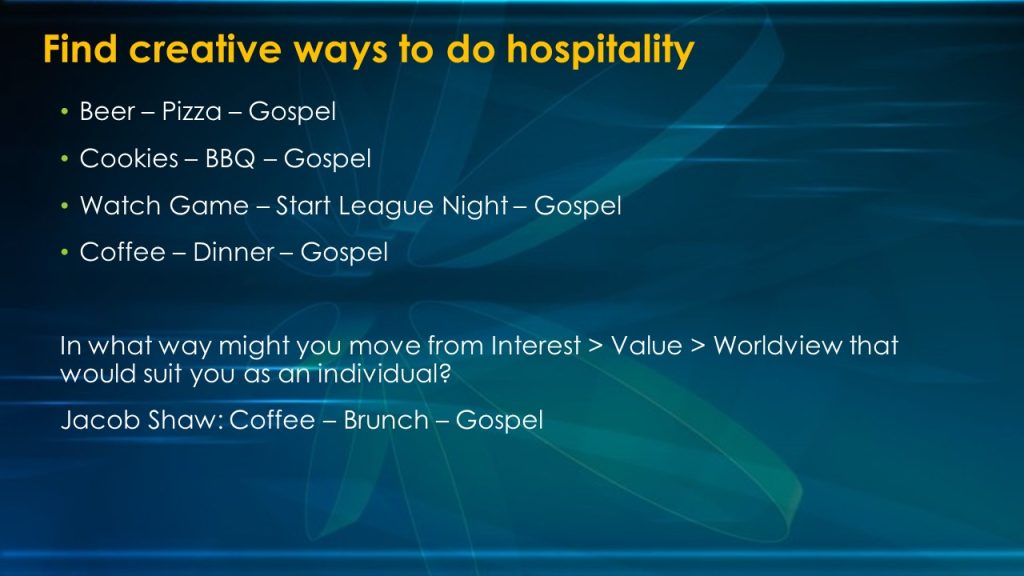
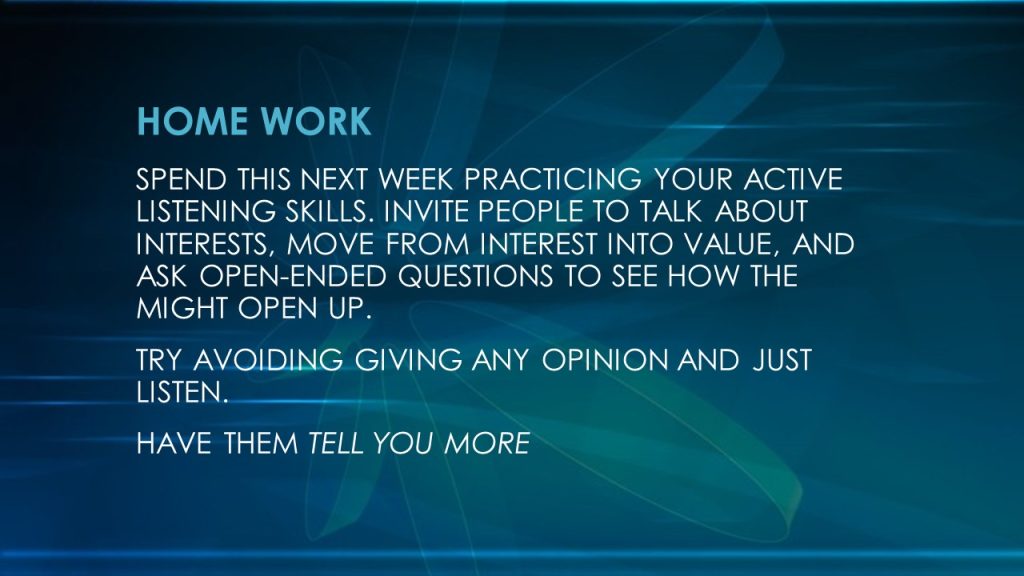
Thank you for joining us online here today to review the lecture material from March 14, for more reflection on Merging your Universes from the themes of Sam Chan’s book, please follow this link –> Here (please note that the reflection found via this link is connected with a past program held by Villages United Church in Granton ON.)
Hope to see you next week either online or in church. GOD BLESS
Leave a Reply